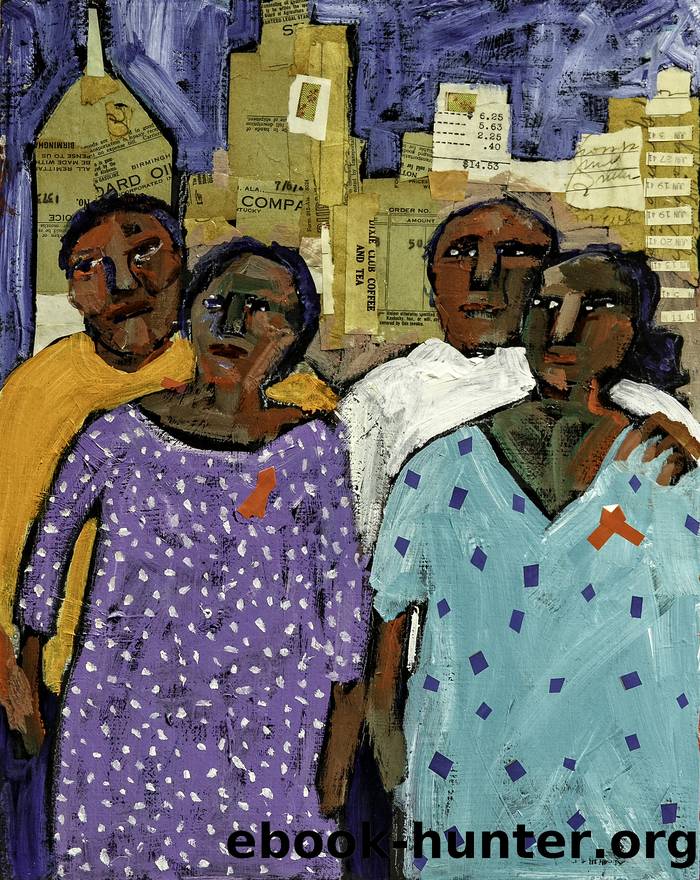Catholic Theology of Marriage in the Era of HIV and AIDS by Reimer-Barry Emily;

Author:Reimer-Barry, Emily;
Language: eng
Format: epub
Tags: undefined
Publisher: Lexington Books/Fortress Academic
Published: 2012-08-15T00:00:00+00:00
To treat Cheryl, Keesha, Diva, and Crystalâand women with similar experiencesâas whole, integrated persons, sensitive to the trauma of their past and yet concerned for their physical and spiritual well-being in the present, is no easy task for members of the church or for medical professionals. But it seems irresponsible for church leaders to deny drug users who are at risk for HIV infection with the means to prevent HIV infection, especially in the face of mounting evidence of the effectiveness and long term cost savings of needle exchange programs.[93] To simply reassert the ideal of abstinence from drug use without also offering concrete assistance to people impacted by substance abuse risks oversimplification to the point of hypocrisy.[94] Despite the substantial health risks and economic costs associated with substance abuse, only a small percentage of persons needing substance abuse treatment actually receive it.[95] In the midst of ongoing funding cuts to mental health and substance abuse treatment programs in the United States, Catholic leaders must be both compassionate and prophetic, urging politicians and voters to fund effective programs to assist persons facing drug addictions to overcome their dependency on these harmful substances while simultaneously working to address the situations of social decay and fractured lives caused by addictive lifestyles.
It is unfortunate that public debate around AIDS-related issues so often focuses on controversial topics like condom use or needle exchange programs, when there are many more social justice-related concerns on which the Catholic tradition already speaks with profound clarity. Catholic social teaching offers a framework for thinking about the moral dimensions of public policies. If more committed Catholics would advocate for public spending for HIV-specific programs like HOPWA, Ryan White, ADAP, as well as related programs like poverty reduction, housing assistance, and comprehensive medical care for all US citizens, we could give public voice to Catholic social teaching on these important issues.
In addition to public advocacy, Catholic parishes can offer concrete support to HIV-affected persons through formation of church-based support groups and educational outreach initiatives. Support groups are frequently run from social service agencies, hospitals, or clinics, but if church groups began to host these groups then participants could find a place to discuss the inevitable theological and spiritual questions that arise from the reality of suffering from chronic and terminal illness. For my collaborators, their support groups offered them safe places to express fear, anger, pain, and joy with people whom they trusted. In addition to support groups, parishes could offer assistance with meals and rides for HIV-affected persons through voluntary networks, and HIV educational outreach (including information for adult education, teen education, and age-appropriate material for catechetical classes). While educating parishioners about the fundamental aspects of HIV and AIDS would include descriptions of the modes of transmission and symptoms of infection, a more comprehensive picture of the epidemic would also include how social forces like poverty, racism, and sexism impact rates of HIV infection and the principles of Catholic social teaching that demand a comprehensive response to the epidemic.
By
Download
This site does not store any files on its server. We only index and link to content provided by other sites. Please contact the content providers to delete copyright contents if any and email us, we'll remove relevant links or contents immediately.
Cecilia; Or, Memoirs of an Heiress — Volume 1 by Fanny Burney(32054)
Cecilia; Or, Memoirs of an Heiress — Volume 3 by Fanny Burney(31453)
Cecilia; Or, Memoirs of an Heiress — Volume 2 by Fanny Burney(31402)
The Great Music City by Andrea Baker(30779)
We're Going to Need More Wine by Gabrielle Union(18626)
All the Missing Girls by Megan Miranda(14711)
Pimp by Iceberg Slim(13774)
Bombshells: Glamour Girls of a Lifetime by Sullivan Steve(13681)
Fifty Shades Freed by E L James(12908)
Talking to Strangers by Malcolm Gladwell(12865)
Norse Mythology by Gaiman Neil(12820)
For the Love of Europe by Rick Steves(11446)
Crazy Rich Asians by Kevin Kwan(8883)
Mindhunter: Inside the FBI's Elite Serial Crime Unit by John E. Douglas & Mark Olshaker(8699)
The Lost Art of Listening by Michael P. Nichols(7157)
Enlightenment Now: The Case for Reason, Science, Humanism, and Progress by Steven Pinker(6869)
The Four Agreements by Don Miguel Ruiz(6311)
Bad Blood by John Carreyrou(6271)
Weapons of Math Destruction by Cathy O'Neil(5825)
